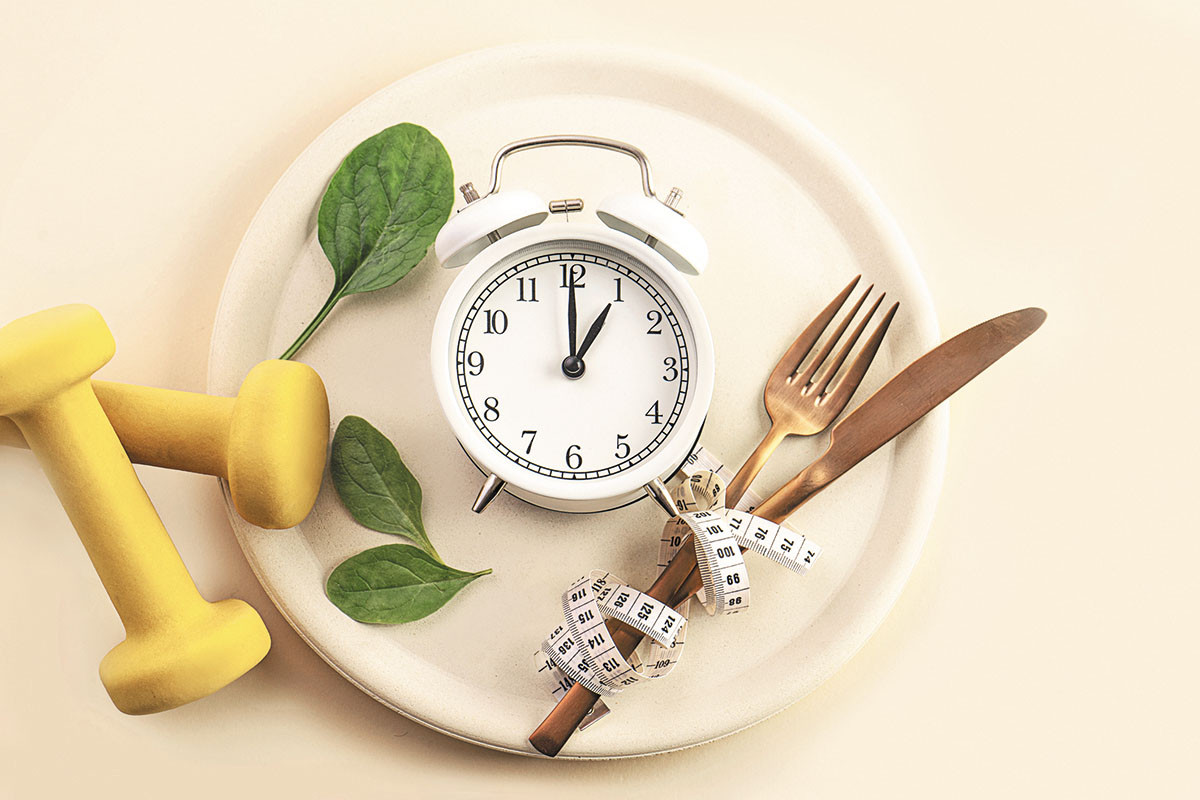Skipping Dinner & Celebrity Diet Trends: Why It Could Be Damaging Your Health
By: Javid Amin | Srinagar | 25 July 2025
Is Skipping Dinner the New Health Hazard?
From intermittent fasting to celebrity one-day meal plans, skipping dinner has become a growing trend. Promoted by influencers and wellness gurus, many believe that eating fewer meals—especially skipping the evening one—can enhance metabolism, aid weight loss, and simplify lifestyles.
But here’s the hard truth: science strongly disagrees.
A recent Harvard University study underscores that maintaining a balanced diet during midlife is crucial for healthy aging, and skipping meals, particularly dinner, can lead to serious health consequences ranging from cardiovascular problems to mental health decline.
In this comprehensive article, we’ll break down why dinner is essential, the risks of skipping it, what the latest studies show, and how even one missing meal could disrupt your long-term health goals.
Why Dinner Matters More Than You Think
Dinner is more than just the last meal of the day—it’s a critical point for nutrient replenishment, family bonding, and metabolic regulation. Let’s explore why this meal holds such weight.
01. Longest Fasting Period Begins After Dinner
Dinner fuels your body through 7–10 hours of fasting during sleep. Without it:
-
Blood sugar may drop too low
-
Muscle recovery may slow
-
Brain function may be impaired by morning
Skipping this meal is like driving through the night without refueling your tank.
02. Nutrient Timing Is Vital
Our bodies require specific nutrients throughout the day, and dinner is often where we consume key micronutrients such as:
-
Iron (from lentils, meats)
-
Fiber (vegetables, grains)
-
Magnesium and potassium (leafy greens, legumes)
-
Healthy fats (nuts, olive oil, fish)
Skipping dinner means missing out on a prime opportunity to meet daily nutritional requirements.
03. Social and Emotional Benefits
According to family nutrition experts, shared evening meals promote:
-
Stronger family bonds
-
Healthier eating habits in children
-
Improved academic performance
-
Reduced risk of childhood obesity
Dinner time is often the only meal families eat together, making it emotionally and psychologically valuable.
Skipping Dinner—What Happens Inside Your Body?
Whether it’s an intentional fast or just a busy schedule, skipping dinner sends a strong physiological signal to your body. And it’s not a good one.
01. Blood Sugar Instability
When you skip dinner:
-
Blood glucose drops
-
The pancreas produces less insulin overnight
-
You may feel shaky, irritable, or exhausted the next morning
This fluctuation affects mood, energy levels, and even brain function.
02. Increased Cardiovascular Risk
Studies, including data from the Journal of Clinical Nutrition, show that meal skipping:
-
Increases cholesterol levels
-
Raises inflammatory markers
-
Elevates the risk of hypertension and atherosclerosis
Over time, this could increase mortality risk by 30–40%.
03. Mental Health Decline
Skipping meals is linked with:
-
Higher rates of anxiety and depression
-
Sleep disturbances, including insomnia
-
Mood instability, especially in older adults
One study found that older adults who skipped dinner experienced deeper levels of depression and anxiety, and were more prone to cognitive decline.
What the Harvard Study Reveals
A Focus on Midlife Diet and Healthy Aging
Harvard researchers examined dietary habits among individuals in their 40s to 60s and followed them into older adulthood.
The key finding: Those who maintained consistent, nutritious eating patterns—including dinner—aged more healthily. This included:
-
Fewer chronic diseases
-
Better mental clarity
-
Higher mobility and independence
Skipping dinner or reducing food intake to a single meal a day was associated with:
-
Shortened lifespan
-
Increased risk of heart disease
-
Higher rates of metabolic syndrome
“Midlife diet consistency was the strongest predictor of later-life wellness,” researchers noted.
Celebrity Diets—A Dangerous Example
Many celebrities promote one-meal-a-day (OMAD) diets, fasting windows, or skipping dinner to maintain a lean figure. But these trends can be:
-
Unsustainable
-
Nutritionally deficient
-
Dangerous for vulnerable groups (like teens, seniors, diabetics)
The Celebrity Influence Trap
What works for a 25-year-old actor with personal chefs and nutritionists may not suit a working parent or growing teenager.
Fad diets can lead to:
-
Malnutrition
-
Disordered eating
-
Hormonal imbalances
Expert Tip: What works for someone with professional health oversight isn’t a one-size-fits-all solution.
Data-Driven Dangers of Meal Skipping
Key Statistics from Recent Research:
| Health Risk | Data Insight |
|---|---|
| Cardiovascular Disease | 2.5x increased risk from regular meal skipping |
| Depression | 35% higher rate among dinner skippers |
| Insomnia | 48% more likely to struggle with sleep |
| Obesity | 27% more likely if meals are skipped and overeating occurs later |
| Mortality Risk | Up to 40% increase in all-cause mortality |
Dinner Is the Last Line of Defense for Daily Nutrient Intake
Even for people who eat well during breakfast and lunch, dinner completes the daily nutritional cycle.
Most Consumed Nutrients at Dinner:
-
Vegetables and fiber (which most people are already deficient in)
-
Omega-3 fatty acids (from fish or nuts)
-
Lean proteins (essential for muscle maintenance)
-
Complex carbohydrates (for sustained overnight energy)
Dinner often provides 40–45% of daily caloric and nutrient intake, especially in cultures like India, Spain, and Japan.
Skipping it consistently leads to chronic micronutrient deficiencies over time.
The Mental Health Connection—More Than Just Mood
Psychological Impact of Skipping Dinner:
-
Increased cortisol (stress hormone)
-
Higher anxiety and panic episodes
-
Nighttime food obsession
-
Distorted body image in teens and young adults
Research from Psychiatry Research Journal highlights that those who skipped evening meals had:
-
More episodes of mood instability
-
Lower sleep quality
-
Increased rates of binge eating the following day
Cultural and Familial Importance of Dinner
In many cultures, dinner is a sacred social practice:
-
Indian families connect over sabzi, dal, and roti
-
Italian families gather for pasta and stories
-
Japanese dinners include shared bento-style dishes
Social Benefits Include:
-
Better emotional bonding
-
Increased gratitude and mindfulness
-
Lower rates of teen substance abuse and behavioral problems
Dinner isn’t just food—it’s connection, rhythm, and routine.
Intermittent Fasting—Separating Fact from Fiction
Intermittent fasting (IF) has benefits—but it’s often misapplied.
When Intermittent Fasting Becomes Risky:
-
If it leads to missing out on key nutrients
-
If used as a crash diet
-
If it exacerbates hormonal issues or sleep problems
Doctors recommend that IF should:
-
Be guided by a nutritionist
-
Never involve meal skipping for children, pregnant women, diabetics, or those with eating disorders
-
Not eliminate key meals like dinner unless planned with full nutritional compensation
Solutions & Healthier Alternatives
✅ If You Must Eat Light at Night:
-
Try soup with whole grains
-
Steamed veggies and a boiled egg
-
Greek yogurt with berries and chia seeds
✅ Balance Is Better Than Restriction:
-
Smaller portions, not full omission
-
Aim for consistency, not perfection
✅ Make Dinner a Family Habit:
-
Cook at home (80% of people still do!)
-
Set a device-free dinner policy
-
Keep vegetables and lean proteins on every plate
Final Thoughts: Don’t Skip the Meal That Matters Most
The evidence is clear: Skipping dinner may offer short-term simplicity but comes with long-term health consequences—including:
-
Higher mortality risk
-
Increased cardiovascular problems
-
Emotional distress
-
Nutritional deficiencies
Dinner is not just a meal—it’s a daily act of self-care, nourishment, and connection.
Instead of skipping it, redefine it. Make it lighter, cleaner, or earlier—but don’t leave your body, brain, and soul empty at the end of the day.
Summary Checklist
| Risk of Skipping Dinner | Long-Term Consequence | Healthier Habit |
|---|---|---|
| Nutrient deficiency | Weak immunity, fatigue | Eat a balanced evening meal |
| Blood sugar fluctuations | Irritability, brain fog | Include protein and complex carbs |
| Mental health issues | Depression, anxiety, sleep disorders | Practice mindful eating |
| Cardiovascular strain | Hypertension, atherosclerosis | Reduce sodium, not meals |
| Social disconnect | Family disintegration, poor communication | Prioritize shared mealtimes |



